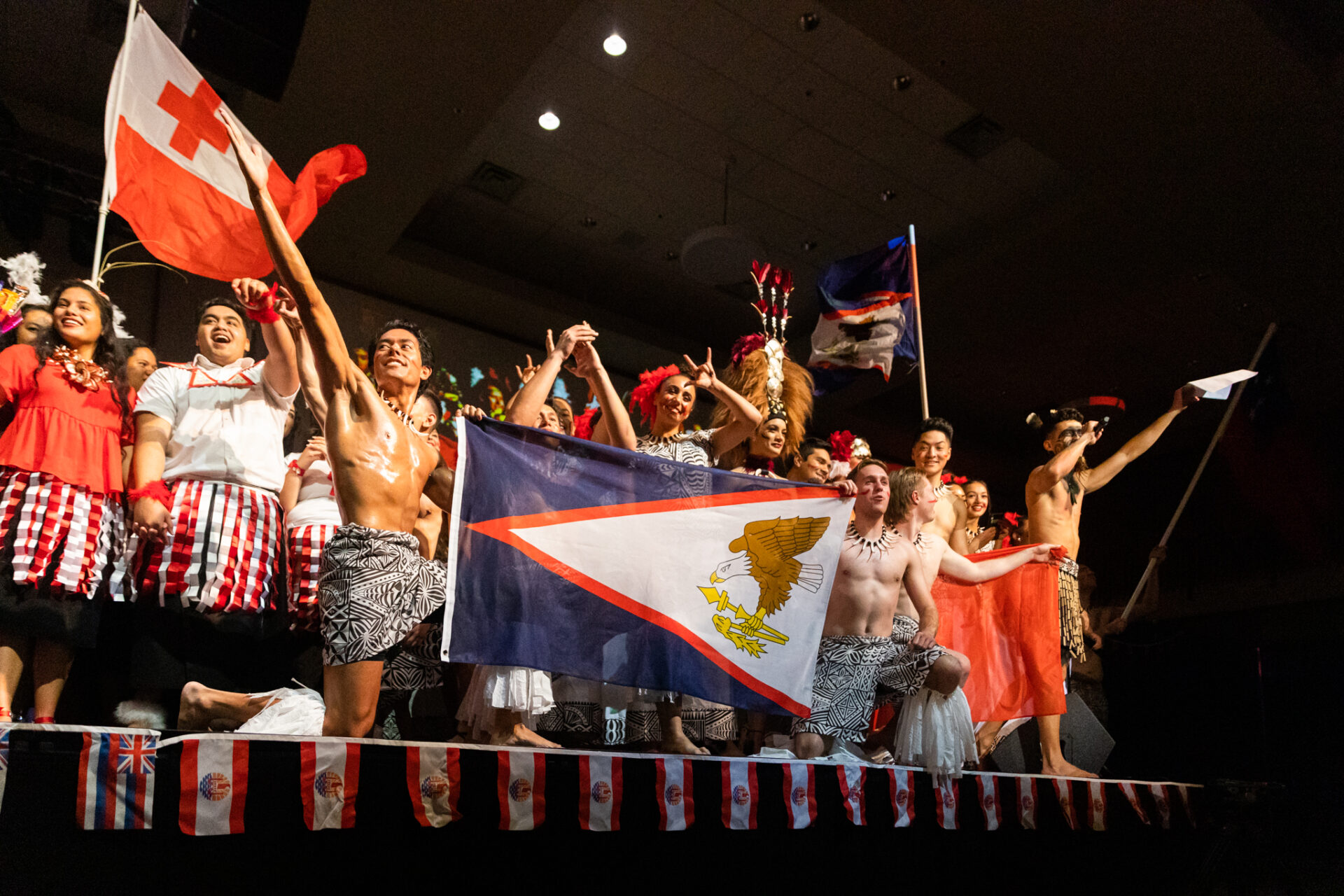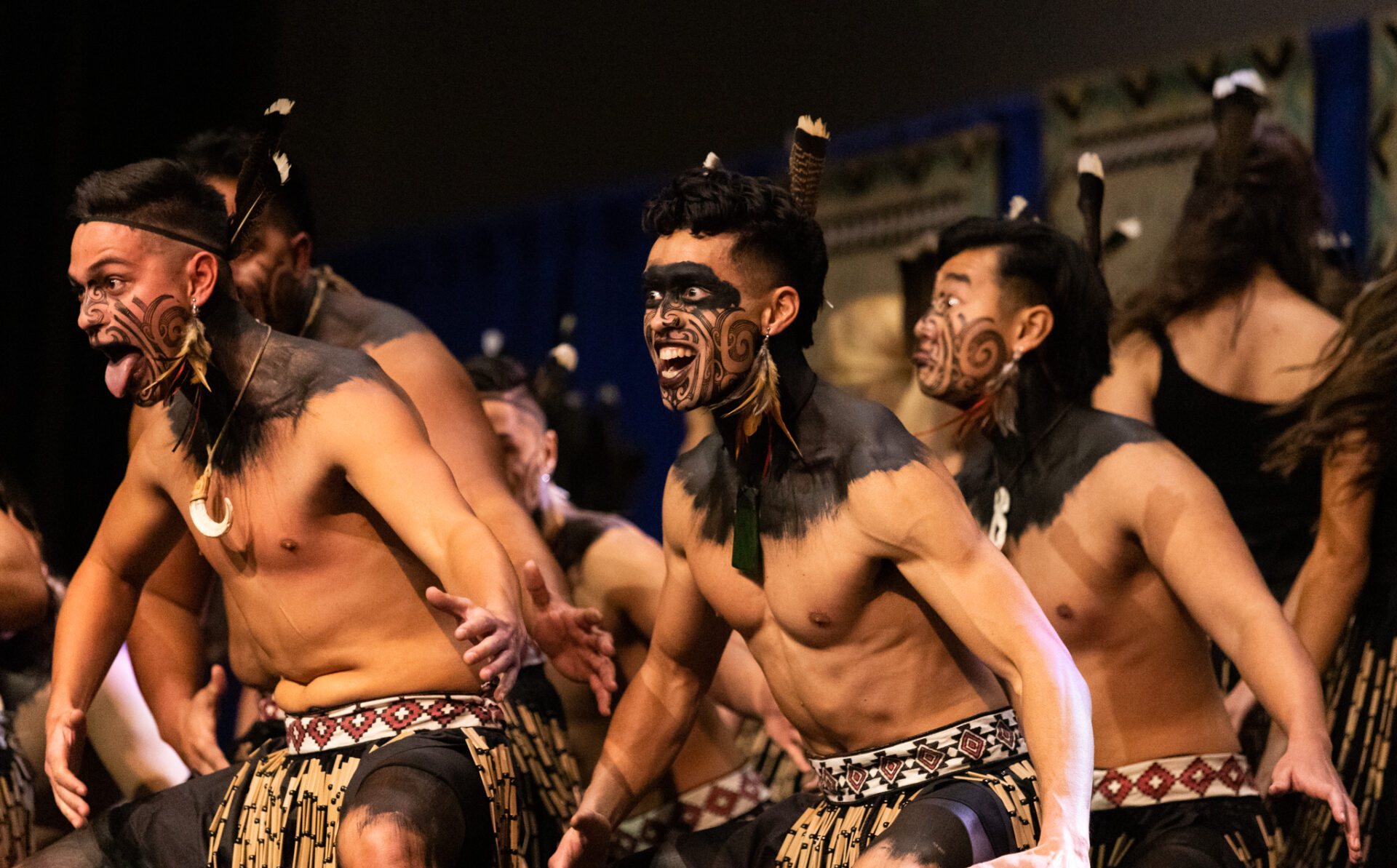
There was a hum of excitement among the audience as BYU’s annual Luau event returned to the stage after a two-year hiatus. The ballroom of the Wilkinson Student Center was standing room only as students, faculty and members of the community gathered to celebrate the sold-out event.
Organized by BYU’s Multicultural Student Services, Luau is a celebration of the culture and people of the Polynesian islands. Through the sharing of Polynesian music and dance, students hope to promote cultural education, inclusion and leadership.

Sisters Pou and Kina Fifita, both freshmen from Denver, participated in Luau to help highlight diversity at BYU.
“I think it’s an opportunity for us to show our talents and our culture, because you don’t always see that at BYU. I think it’s good to share where we all come from and come together to demonstrate it in front of the student body. In the end we are all Heavenly Father’s children,” Kina said.

Luau not only benefits those participating, but also teaches the audience about various traditions and cultural traits among the different islands. Students from all ethnicities and backgrounds are encouraged to participate in the performance.
Marypaz Cuessy, a senior from Whittier, California, is not Polynesian herself but was able to participate in the New Zealand section of the event. Cuessy, of Native American and Latina heritage, appreciates Luau for its ability to help students expand their perceptions of the world.
“All these cultures offer and teach about family, love, tradition and the importance of those values,” Cuessy said. “Especially with the New Zealand section, the haka is about protecting our families and those we love.Their values resonate with my beliefs and who I want to be as a person and what I want for my own family.”

“I believe it’s important to know about the world around us. We shouldn’t just live in a bubble and live life from only our own personal experiences,” said Jared Cuessy, a first-year graduate student from Whittier, California, who performed in the New Zealand section. “We should really try walking in the shoes of others and recognize a bit more of their background, culture and heritage.”

When the Tahitian section leader knocked on Christian Theobald’s door and asked him if he wanted to dance in the Tahitian section of Luau, Theobald responded, “You know, why not? This will be a fun experience.” And indeed, he says, it was.
A junior from Mesa, Arizona, the only prior experience Theobald had with Polynesian dance was the introductory class offered on campus.
“I chose to do Luau because the Polynesian culture really interests me. I learned a lot more about the culture and what everything means. I also learned a little bit of the language,” Theobald said.

Tori Young, a junior from Meridian, Idaho, was inspired to participate in Luau by her love for the Polynesian culture, in addition to her love for the Polynesians in her life.
“I have always really appreciated the joy and love of the Polynesian cultures. I also happen to be dating a Polynesian, so I’m kinda trying to get the brownie points there,” Young said.

Fu’a Aiono, a junior from the San Francisco Bay Area of California, saw Luau as an opportunity to showcase her love for her Samoan heritage.
“I am Samoan and I am very proud to be Samoan. I chose to do Luau to have fun with all the cultures that are involved within BYU and showcase our people and our culture,” Aiono said.





